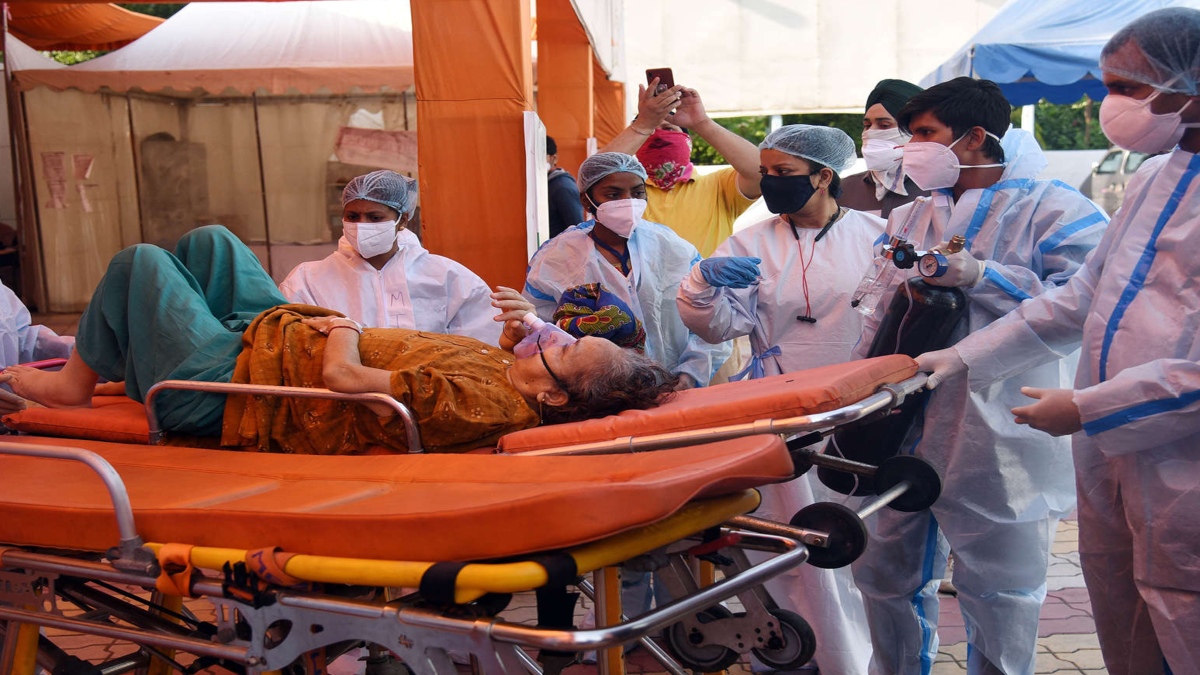The first wave of Covid-19 last year had caught India unprepared and the lockdown provided an extended period in which they could try to ramp up the health infrastructure in the country. With the deadly second wave of Covid-19 hitting the country unexpectedly, it exposed the inadequate preparedness and the absence of the systems thinking approach to combat a highly infectious disease that took a heavy toll on lives.


The Covid-19 pandemic is a dynamic problem and there is no real or absolute solution. In this fast-changing environment, every day people come across new interpretations, multiple variants of truth, misinformation, and rumours. It is far too aggressive for any existing healthcare system, anywhere in the world, to tackle the crisis with a predetermined or existing model of treatment. Instead of blaming the governments, it is an important time for all stakeholders to adopt systems thinking in managing the second or future waves of Covid-19.
With regards to Covid-19, what is currently happening in India is not only the country’s problem alone. The United Kingdom, United States, Europe, and Brazil also faced tough times in 2020, but their problems and pains were realised by the entire world. It’s now India’s turn to fight the pandemic head-on.
If what affected the world in 2020 can be termed as CoV-1 then India is undergoing a deadly CoV-2 crisis. It appears that the country would be fully occupied with its implications and impact in 2021 because this variant is evasive and more infectious, thus causing the disease to transmit faster. Moreover, this variant is infecting both young and children resulting in more loss of life. And, it doesn’t respect “herd immunity” either. Back in January 2021, Delhi had declared that they were close to reaching herd immunity, with over 50% of its population having CoV-1 antibodies (Welle, 2021). But now, it is one of the most affected cities in India.
India is learning its lessons fast through the experiences documented in other countries. Some systemic problems do need to be addressed with systems thinking which will require a major shift in mindset, away from linear to circular. Ultimately, the core principle of this shift is that everything is interconnected.
For the response and management of a complex and severe pandemic, like Covid-19, decision-makers need to navigate with an approach to problem-solving that considers each issue as part of a wider and dynamic system. Therefore, India needs to involve much more than a reaction to present outcomes. They need to look into a deeper understanding of the linkages, relationships, interactions, and behaviours among the elements that characterise this dynamic situation and system.
As more and more people become infected, the number of frontline healthcare workers will most likely drop due to the overwhelming exposure to Covid-19. This drop would be a result of workers needing to be quarantined or isolated for a certain period. “Reports from affected countries have revealed in the past that 22% of health care workers were affected in hospitals across Hong Kong, with the initial wave managing to infect 80% of the staff working in the medical wards of Prince Wales Hospital. This is just one example of the magnitude with which this virus has taken a toll on the health workforce” (Nagesh, S., & Chakraborty, S., 2020).
Furthermore, this thinking is not just a healthcare problem. It is a bigger psychological and fear-psychosis problem whereas the moment one is tested positive, he or she panics and feels like they need to be admitted directly to the hospital. It is empirically evident now that with the support of the Covid Care Program run by health-tech service providers such as DayToDay Health India (DTDHI), the majority of patients with mild and moderate severity can be efficiently managed while recovering at home. Over 60% of the hospital beds are currently occupied by Covid patients in India, who are both suspect and positive, as per The New Indian Express, 2020 news report. Moreover, these types of services also address their families’ stress and anxiety by creating a means of holistic management of the patient’s entire care journey while they are sick.
Dealing with a dynamic Covid crisis requires systems thinking, not knee-jerk point solutions. Systems that get implemented during a crisis, are not supposed to be designed in a non-fluid way because of how quickly things change. And, blaming governments is of no use because we are all in this together. The government is in a position where they need to maintain a balance between an economic shutdown and tackling the virus spread as a whole. Even if the decision-makers adopt systems thinking approach, responsible citizens should join the fight against the Covid in the right spirit. We all need to combat the crisis as an individual, family, society, or nation and simply do our part in preventing the spread.
If India adopts systems thinking in its healthcare delivery, it would certainly transform the way Covid is being managed currently. At DTDHI, we believe that tech-enabled human-driven solutions would not only strengthen the country’s fight against the pandemic but also result in proactive and efficient population health management.
The writer is Founder & CEO, DayToDay Health India (DTDHI).























